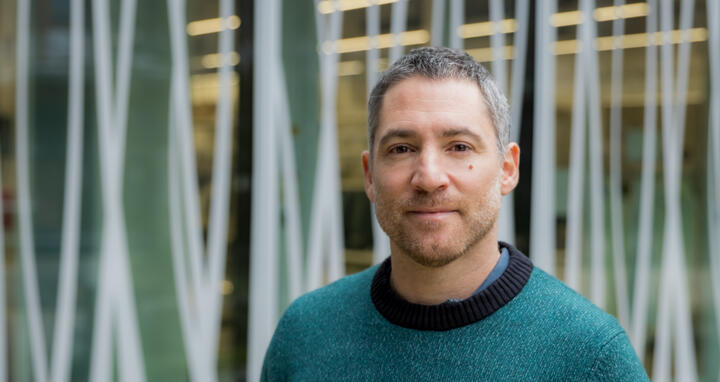From Barcelona to Berlin
Combining diverse perspectives and different ways of thinking leads to creative solutions and innovative ideas. Nowhere is this more true than in science. When researchers exchange ideas across borders, they can uncover new insights and find answers to key research questions.
As part of Stiftung Charité’s Visiting Fellows program, top scientists from abroad will set up a research group in Berlin with the aim of conducting a joint research project with their host scientist. Visiting Fellows are thus integrated into the Berlin research landscape for longer periods than traditional visiting scientists. For the first time under the program, Stiftung Charité has announced grants totaling €1.5 million for Visiting Fellows to bring four top scientists to Berlin. One of them is Professor Manuel Irimia from the Centre for Genomic Regulation in Barcelona, Spain.
Analyzing alternative splicing at the single-cell level
I have already worked closely with Manuel in the EU-funded training network circRTrain. I now look forward to deepening our exchange in Berlin.
The biologist and geneticist is establishing a research group at the Max Delbrück Center for an initial period of three years. Together with Professor Nikolaus Rajewsky, director of the Berlin Institute for Medical Systems Biology of the Max Delbrück Center (MDC-BIMSB), and other local partners, he will investigate so-called alternative splicing. Alternative splicing is a trick that cells use to produce a variety of similar proteins from a single gene, especially proteins that play a key role in gene regulation. Errors in this process give rise to defective proteins, which may cause diseases that can be corrected or mitigated by new therapeutic approaches.
Manuel Irimia’s team in Berlin will be the first scientists to examine this mechanismsof gene regulation at the single-cell level. This technically challenging undertaking requires not only innovative sequencing technologies, but also cutting-edge methods for analyzing the data obtained. “I have already worked closely with Manuel in the EU-funded training network circRTrain,” says Rajewsky. “I now look forward to deepening our exchange in Berlin.” In addition to advancing research, the program enhances Berlin’s reputation as a center of scientific excellence. “The Visiting Fellows program not only brings more exciting science personalities to Berlin, but thanks to the ideas and research projects of the participating scientists also strengthens specific biomedical research areas in Berlin – providing good prospects for attracting subsequent third-party funding,” says Dr. André Lottmann, head of Stiftung Charité’s head office. Last but not least, the collaboration will create enduing ties between Berlin’s research organizations and the fellows’ home institutions.
Text: Jana Ehrhardt-Joswig
Further information







